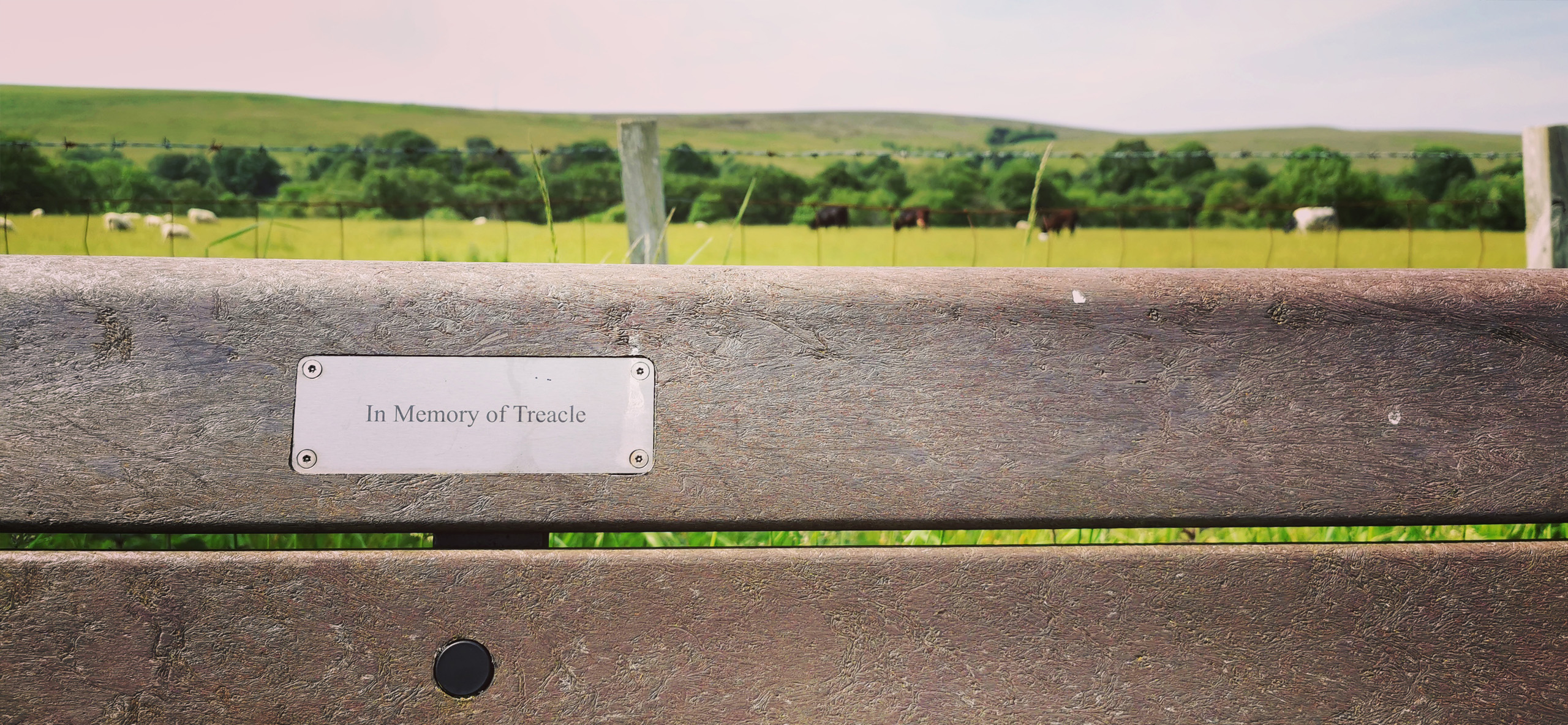In Memory of Treacle – Savouring the Beauty of the Empty Spaces of Northumberland
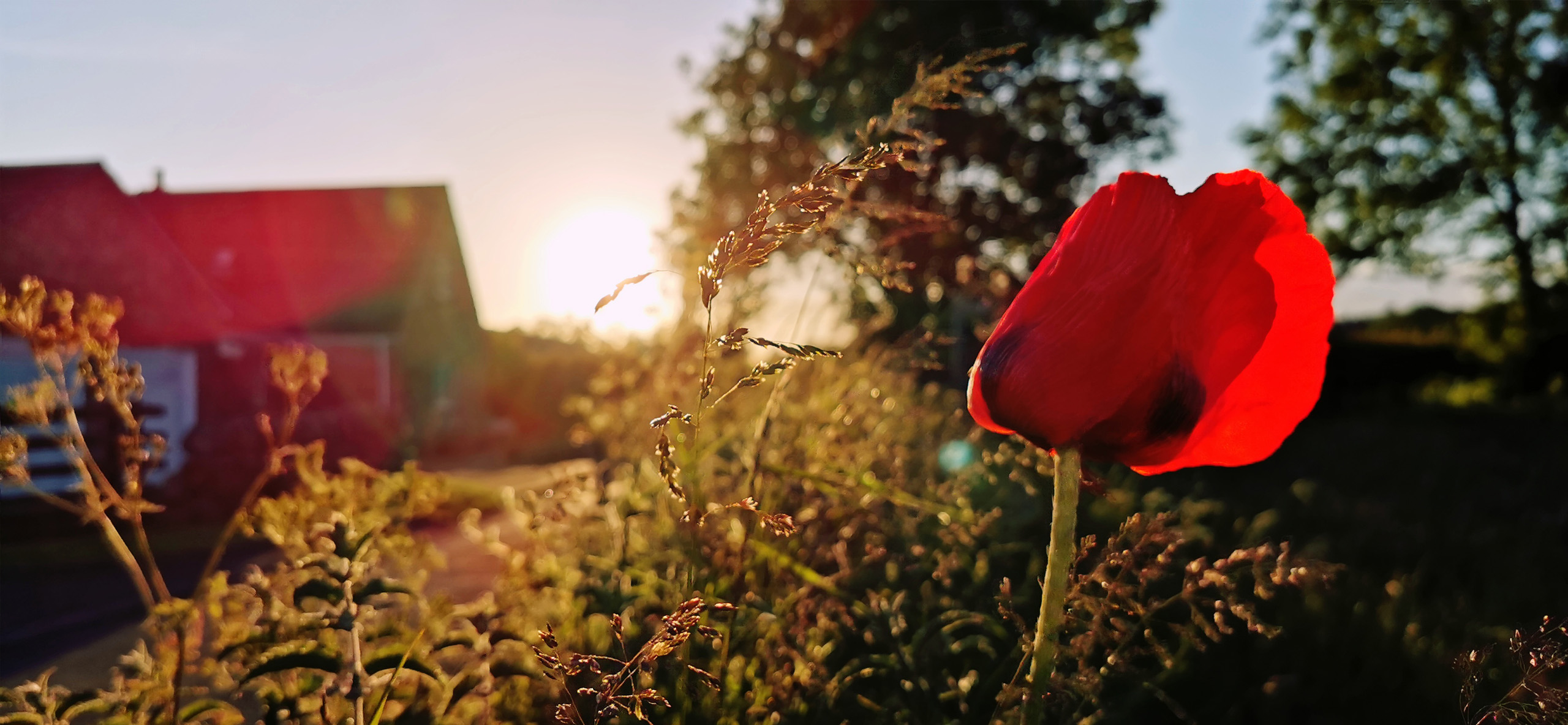
Public space for walking and daydreaming is common in any town. Paths along canals wind and curve around cities and towns allowing residents a chance to escape the hustle and bustle of city life without actually leaving the city. Equally common along these walkways are benches where anyone can stop to take a moment to breathe, take in the scene, and let a few moments just float by on a breeze.
The Pennine Way is 268 miles of trail from Edale, through Northumberland, to Kirk Yetholm just inside the Scottish border which hiking enthusiasts have been walking for decades. It is serious walking. Along this path is a small town called Bellingham that few people ever hear about unless they are walking the Pennine Way. On my own personal route northward toward Scotland, though I was not walking the trail, I had had a mind to visit Northumberland to get away from cities as the sound of automobiles had been ringing in my ears ever since I had left Bolbroke in Sussex, and I was delighted by the prospect of feeling a bit out of touch for a while.
“It’s quite bleak up there,” someone mentioned to me after I stated that I was headed to Northumberland, “that is to say, there’s not very much to look at.”
“That’s exactly what I’m looking for,” I replied.
Bellingham became my Northumberland stop due to a particularly attractive and affordable Airbnb located out that way. The accommodation itself was actually located a mile outside of the town south along the old boat road that led down to the river and curved around the town. There is not much out in Northumberland but pasture land for cows and sheep and there are more of those in the vicinity of Bellingham than there are shops or pubs or much of anything else servicing a population of just over 1,000 inhabitants. There is little need for park space since most of the space is open and public to begin with so long as you remember to stay on the footpaths and remain alert for charging oxen.
The old boat road runs south out of town for a mile along a hastily paved path that likely has not been improved since it was first made and is wide enough for only one car to pass at a time – not like it sees much traffic as there are only a small handful of homes along the way, a farm, a guest house and a cul-de-sac at the far end. Mysteriously, about halfway along the road is a bench for sitting, much as one might find along a footpath in a city park. There it sits with its back along the fencing of a sheep’s paddock overlooking the road and another paddock on the other side. It seems an odd spot to put a bench and the evidence suggests that few have sat in it in a long time as the tall grass has begun to take it over. On it is an inscription that reads: “In Memory of Treacle”.
I had to know why.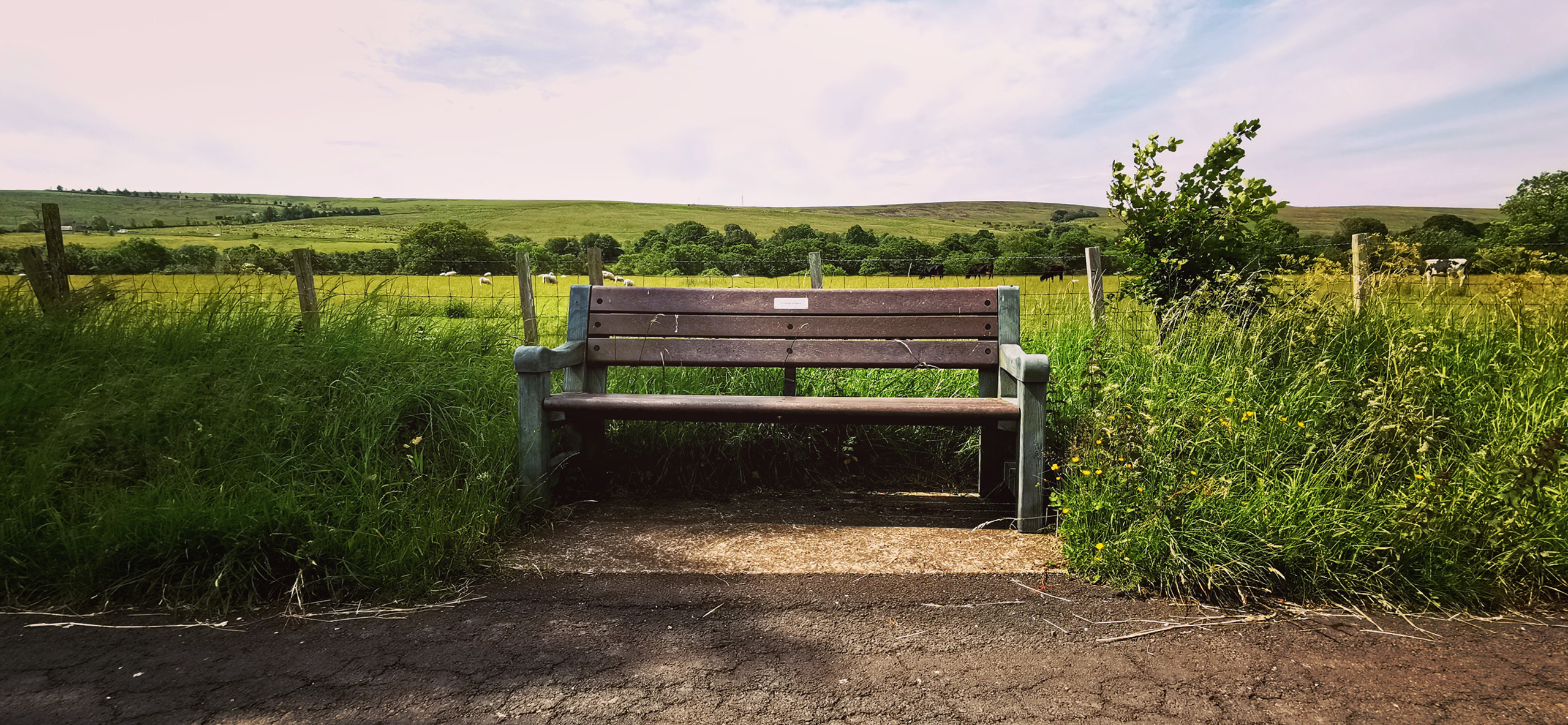
I had limited time in Bellingham in which to do my sleuthing but there were only those 1,000 people, so I figured it could not be too complicated to find someone who would know the story. Oddly enough, I was never able to find a single person who could provide an account of the whole story, but when you are determined and take the time to ask just about everyone, someone is always able to add a detail here, or a missing piece to the puzzle there. As a result, I alone have a clearer picture of why the bench is there than anyone. Strangely, just about everyone (of a certain age that is) knew of Treacle but always in some different context. If you met someone in the pub, they knew Treacle because Treacle would come into the pub. If you spoke to someone at the post office they had heard of someone who knew Treacle because Treacle used to come into the post office. If you would knock on someone’s door and they had lived there long enough they would say that they knew Treacle because Treacle used to walk past the house. And so on it went without very much detail, only that Treacle had been all about town and everyone either knew Treacle, or knew someone who knew Treacle. Strangely, no one really knew about, or could explain, the bench.
A visit to the heritage centre offered a picture of the history of the town and its surroundings. Nowadays there are a handful of houses along the old boat road but it wasn’t always that way. Once upon a time, there was Bellingham town and nothing more than a footpath that led out past the paddock to the shepherd’s residence at the far end. It seems that it remained that way until late into the last century with the shepherd’s residence, and the resident therein, a Mr. Leuwen (you’ll have to pardon me, for this may not actually be the old resident’s actual name as the Geordie accent is a difficult one for my unseasoned ears to make sense of, but that is what I heard). Mr. Leuwen operated the paddocks as a proper shepherd and his sole occupation was to maintain the herd and the paddocks. Over the years, mostly occupying those years of the second half of the 20th century, Mr. Leuwen had many shepherding dogs that worked hard and helped him to oversee the herd. At one point during his tenure, and no one could rightly explain how it happened, instead of having a typical shepherding dog, Mr. Leuwen had at his side a pug who it is said had the look and physique of a pug but the heart and soul of a proper shepherding dog and that he did his work of rounding sheep with as much gusto as any other dog that would be bred for the task – even if he was half the size. The little pug’s name was Treacle.
As part of his job, every day Mr. Leuwen had to make the walk along the road into town to include various notes into the city ledger for his clients who had entrusted him with the care of their livestock – mostly just a headcount ensuring that all were present and had not been carted off by wolves or thieves. It seems that Treacle, of all the service dogs employed by Mr. Leuwen, was the only one who would make the walk into town with him. There was one particular patron of the Rose and Crown Pub, whose name I never got, who seemed as old as time with only a few teeth left and an accent so thick that I could barely make out a single word he said, but who over the commotion that I had created in the bar with my questioning I swear I heard say, “Aww yeh wei! The seet a wee ‘un dowg.” Which, to translate for the reader, meant ‘the dog who sits’.
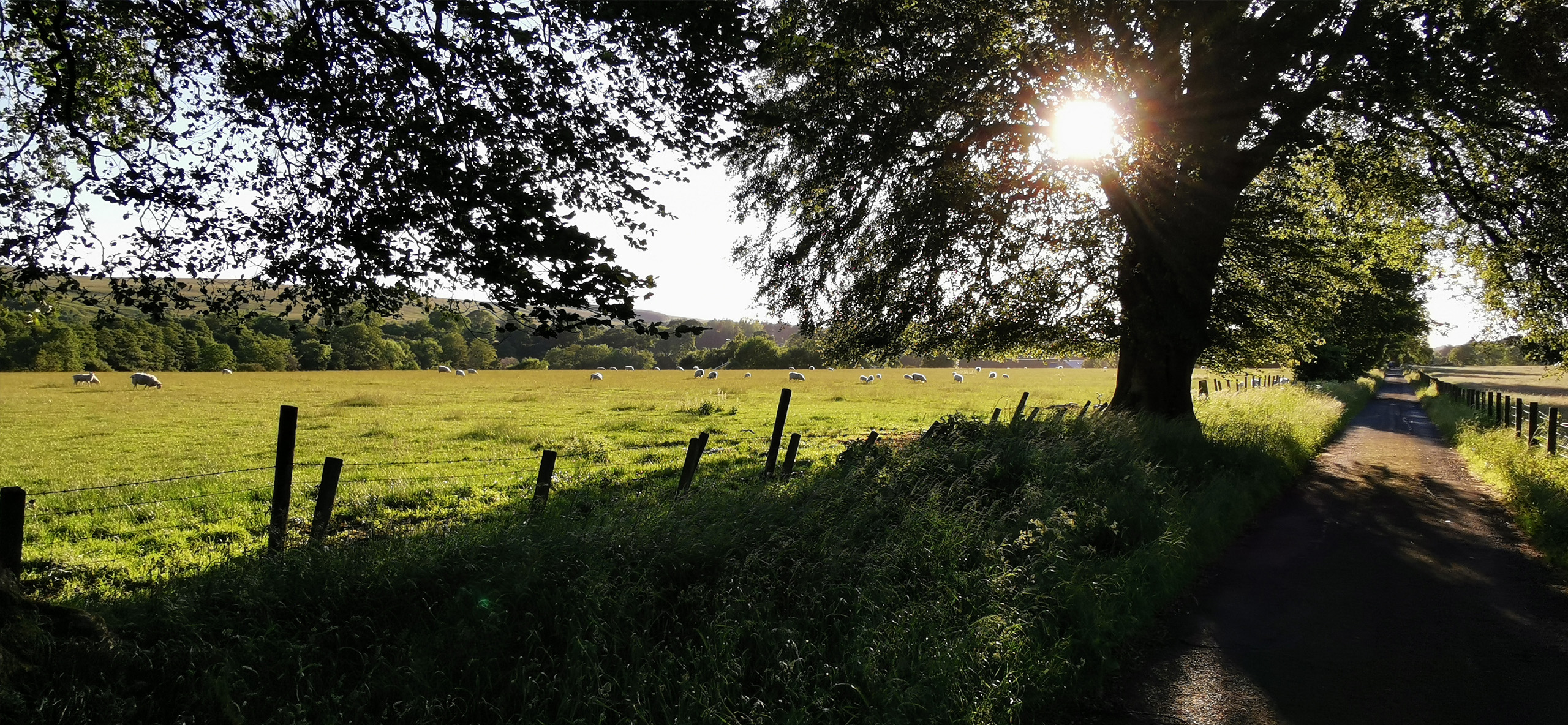
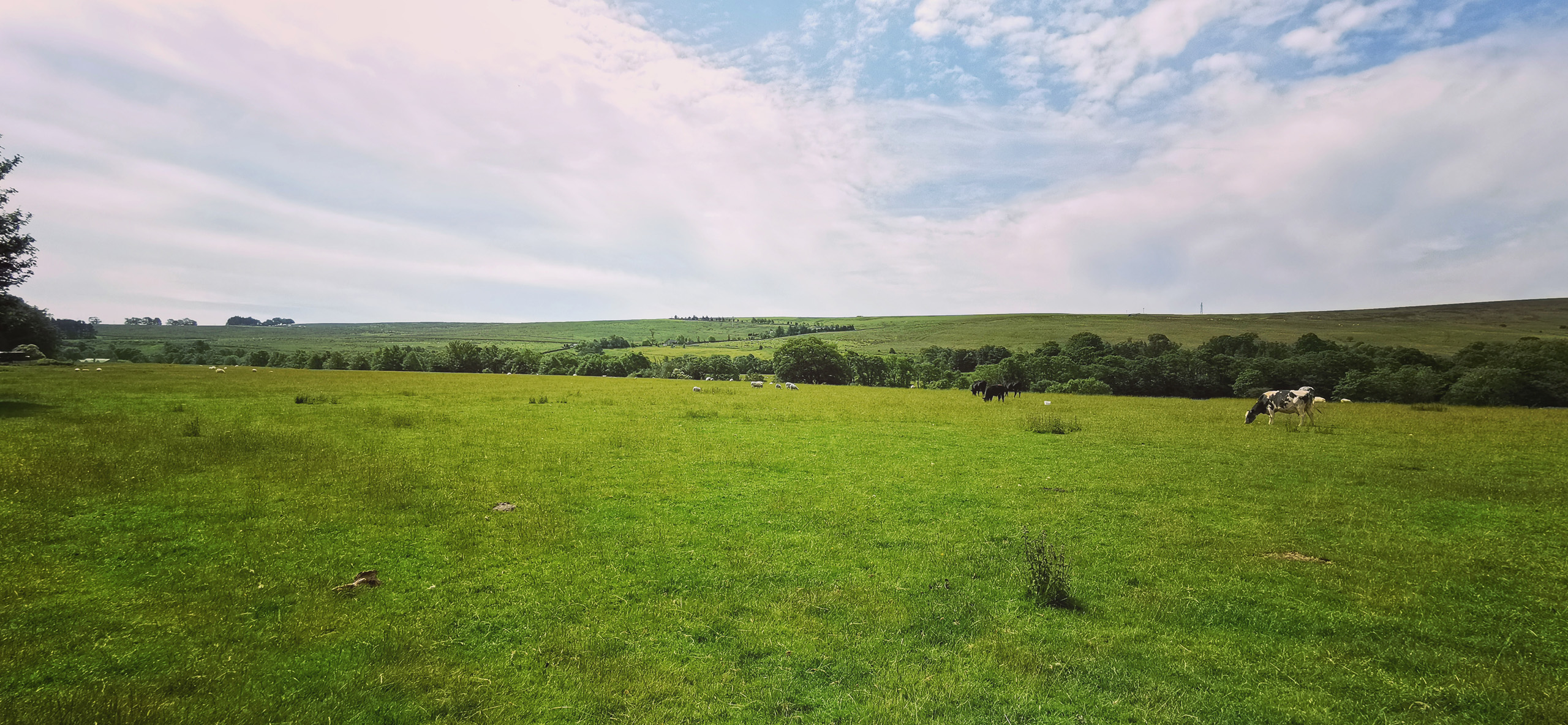
Treacle was a pug with a curious habit. Treacle would travel daily into town with the shepherd, Mr. Leuwen, to visit the Town Hall to record the necessary items into the ledger. While in town, if he needed to run some personal chores like visiting the post office, or shop for fruits and veg at the local co-op, or if he felt like a stop in for a pint and a bit of banter with the lads at the pub, Treacle would be there with him. But it was on their walk along the old boat road that Treacle would demonstrate his curious habit. Halfway through the walk he would always stop for just a minute to have a sit. There really is not all that much in Northumberland but pasture land and the wind blowing through the grass, but Treacle knew to always take a moment to breathe it in.
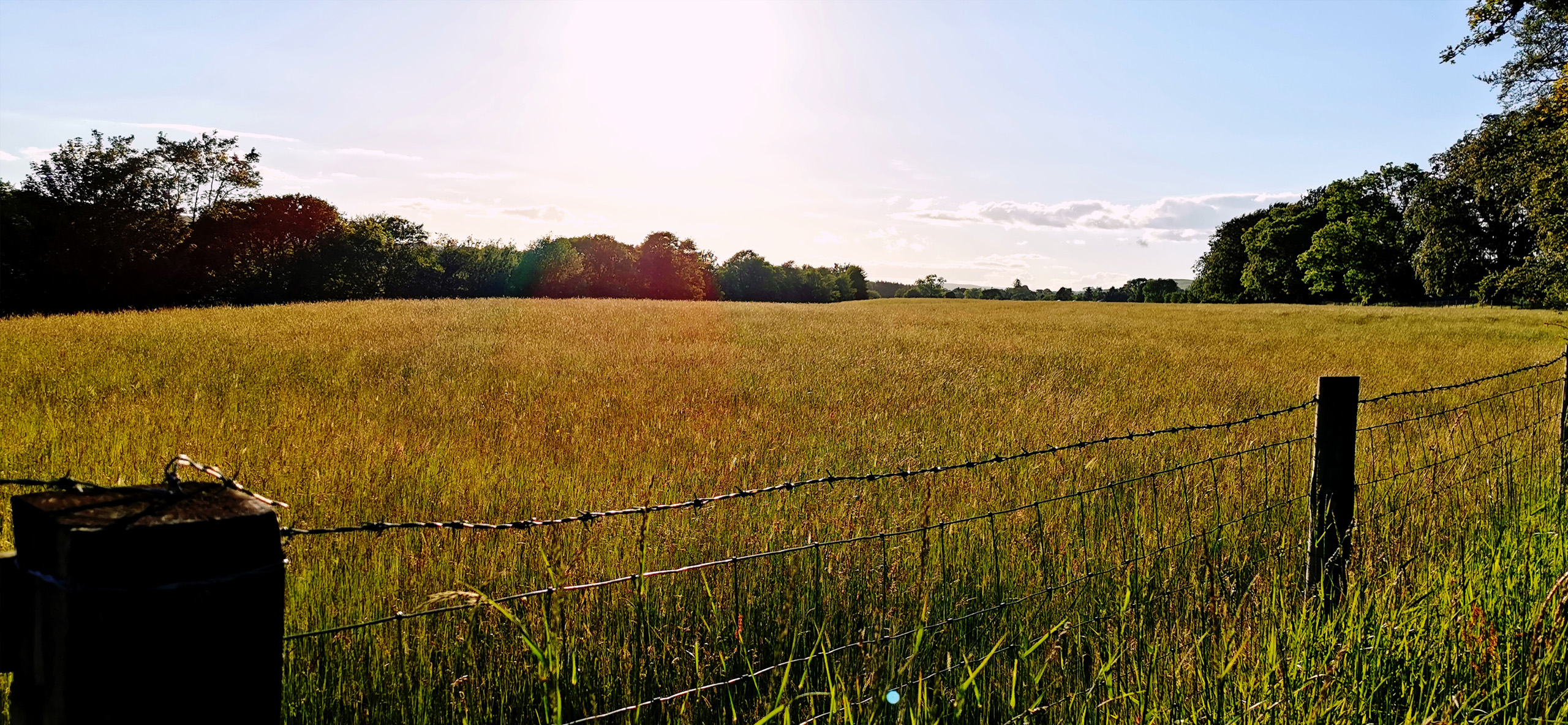
As happens to all dogs, one day Treacle, on his walk into town, stopped as he usually did but instead of sitting, laid down, took a deep breath and never moved again. He already lived well beyond his years always at his master’s side or working hard as any dog out on the paddocks. He was no ordinary pug and no ordinary dog. Mr. Leuwen, so I was told, was a simple and quiet man who said little but smiled often. He spent countless hours in the Northumberland rain tending flocks of sheep on the lonely paddocks on the outskirts of town with his loyal service dogs. He was a hard man, chiselled and eroded by the elements like the creek beds around Hareshaw Linn, but even he was moved by Treacle’s final effort to find the spot where he would always stop for just a minute to breathe in the beauty of a place where there is not much of anything. Mr. Leuwen followed Treacle onto greener pastures (if greener pastures than those in Northumberland exist) and not long thereafter, a couple of decades hence, the town became what it is today. But before his passing, in memory of Treacle, the shepherd erected this monument – a bench along a lonely road that few travel as a way to remind us all to stop for a moment and savour the beauty of the empty spaces of Northumberland.
